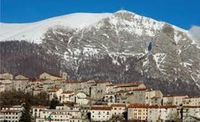On April 2, 2025, Alessandro Paglia, the director of Ali Abruzzo and a municipal councilor in Opi, raised an alarming statistic regarding the education sector in Abruzzo. He reported that there will be over 2,600 fewer students enrolled in schools across the region for the upcoming school year, amounting to nearly 10,000 fewer students over the past four years. This significant decline underscores a trend that Paglia describes as "seemingly unstoppable."
Paglia's comments come in the wake of a broader discussion about the financial health of regional services, particularly the healthcare system. He pointed out that the current debate is centered on increasing taxes to address the regional healthcare deficit, but he cautioned that this financial maneuver is just one side of a complex issue. "The other side of the coin," he explained, "is the constant deterioration of services, and not just those that ensure the right to health, but in many cases, their disappearance altogether."
Highlighting a critical factor in the declining school enrollments, Paglia noted that fewer children are being born, which he attributes to a weakening social network in the region. "There are fewer enrollments in schools because fewer children are being born, and this is also because the social network is weakening," he stated. The consequences of this demographic shift are particularly severe for the internal areas of Abruzzo, where the impact of reduced services is felt most acutely.
As Paglia emphasized, the small mountain schools are at an even greater risk of closure, which poses a threat to social cohesion and cultural references within these communities. "The first victims are, as usual, the more fragile territories, the internal areas, which represent a large part of our region," he lamented. He further explained that while coastal and urban areas can manage a decline in student numbers by reducing class sizes, the small schools in mountain villages face a more existential threat, risking closure one by one.
Paglia's call to action is clear: reversing this trend requires a strategic investment in services across the territories, starting with the municipalities. He asserted that Abruzzo should take the lead in advocating for better conditions concerning the distribution of resources from the National Health Fund. "It is a good initiative that we are preparing to discuss improved conditions regarding the distribution of resources from the National Health Fund, and we hope that the process will yield positive results," he remarked. However, he warned that the discussion must delve deeper into the underlying issues, or a significant portion of Abruzzo risks facing a grim future.
The challenges facing Abruzzo's education system reflect broader demographic and social trends that are impacting many rural areas in Italy. As fewer children are born and families move to urban centers for better opportunities, small towns and villages find themselves grappling with the reality of dwindling populations and the closure of essential services.
Paglia's insights resonate with ongoing concerns about the sustainability of rural communities in the face of economic and social pressures. As local leaders and policymakers consider solutions, the emphasis on investing in social networks and educational resources could be pivotal in reversing the decline.
The film "Un mondo a parte," filmed in Opi, poignantly addresses the issue of school closures in small towns, bringing attention to the struggles faced by these communities. Paglia's position as both a municipal councilor and the director of Ali Abruzzo places him in a unique position to advocate for necessary changes and to highlight the urgent need for action.
As Abruzzo navigates these challenges, the focus must remain on fostering a supportive environment for families, enhancing educational opportunities, and strengthening community ties. Without concerted efforts to address these issues, the region risks losing not only its schools but also the cultural and social fabric that binds its communities together.
In conclusion, the future of education in Abruzzo hangs in the balance as demographic shifts and financial constraints threaten the viability of small schools. The voices of leaders like Alessandro Paglia are crucial in advocating for change and ensuring that the needs of these communities are met. The impending discussions about resource distribution and service investment will be critical in determining whether Abruzzo can reverse its current trajectory and secure a brighter future for its children.





